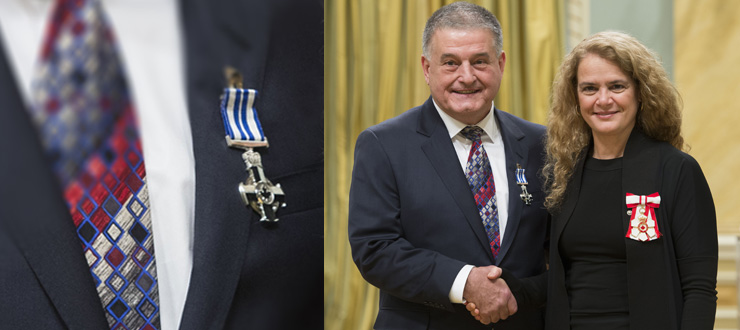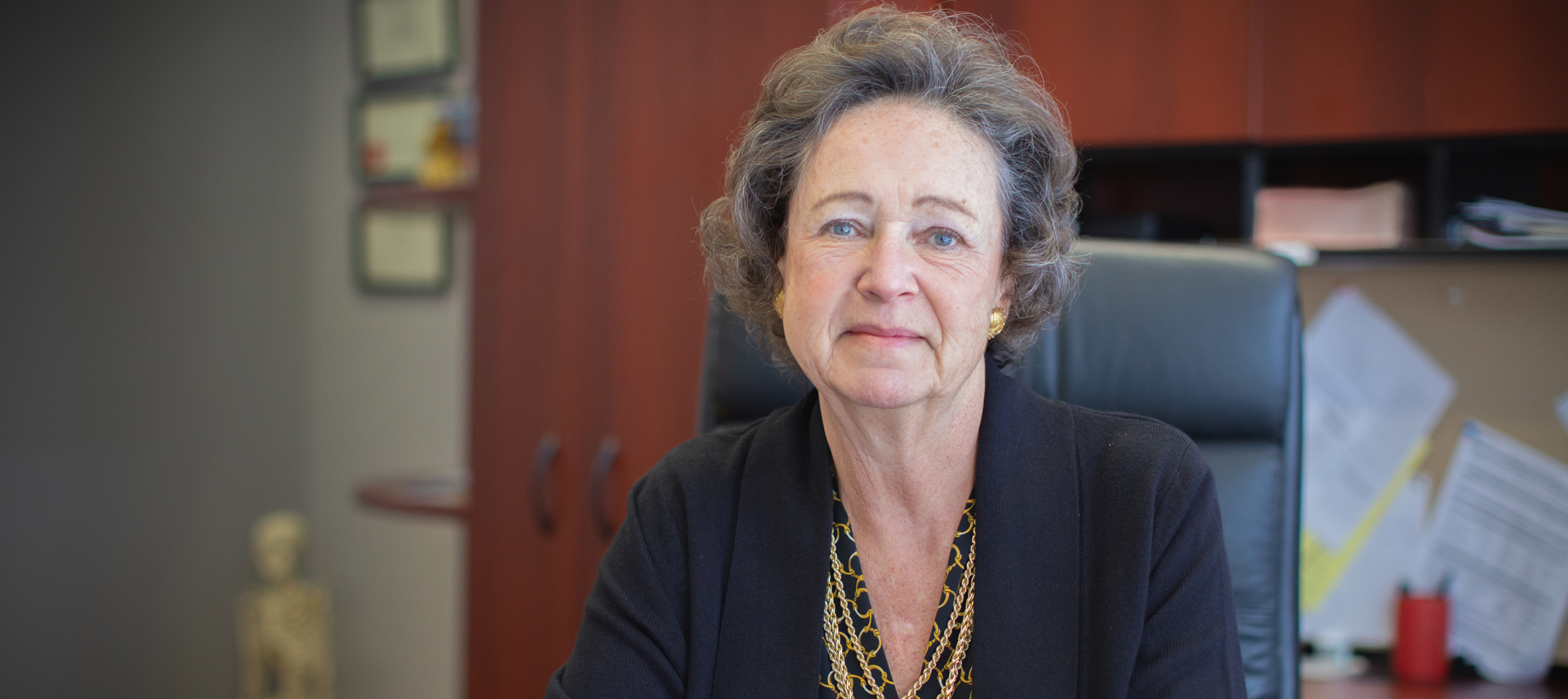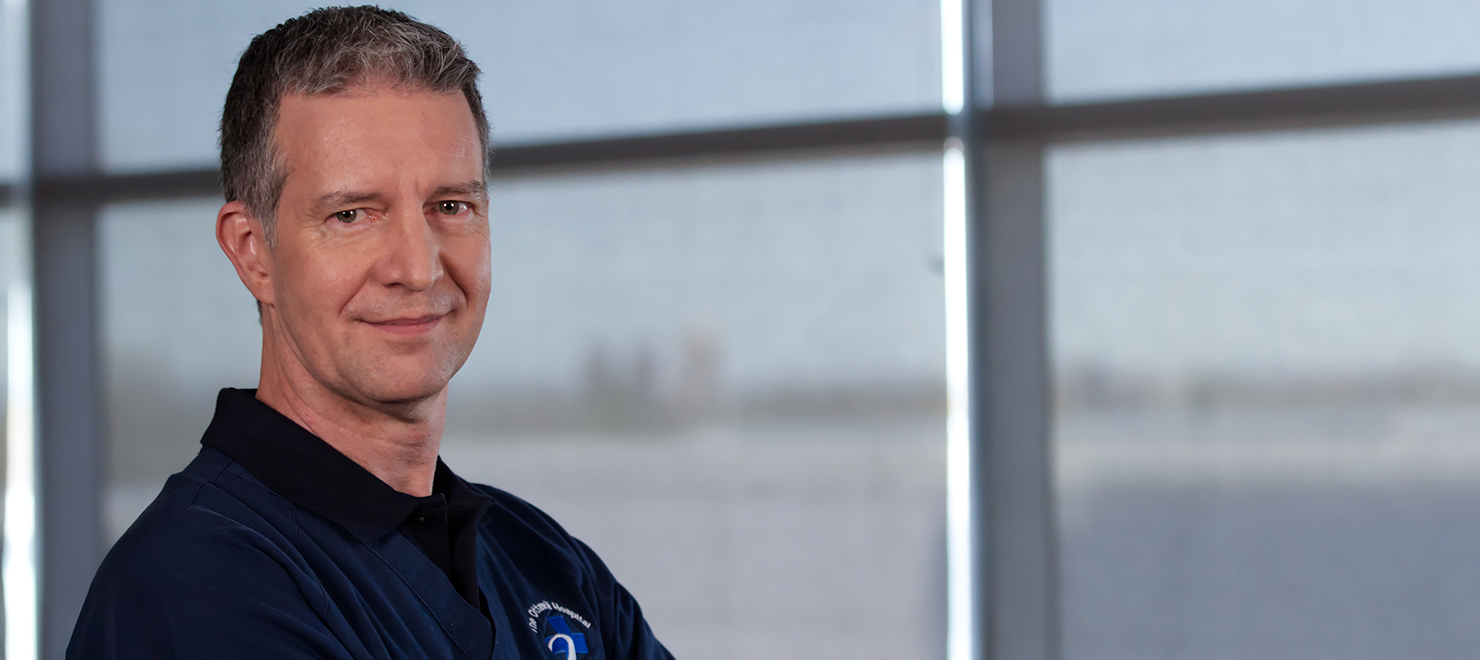
In recognition of his efforts to improve life-saving skills and services, Dr. Justin Maloney received the Meritorious Service Cross from Governor General Julie Payette in a ceremony at Rideau Hall on Dec. 12. Through the Advanced Coronary Treatment Foundation, Dr. Maloney has ensured that more than 3 million students have received CPR training. Photo courtesy of the Governor General’s office.
For more than 30 years, The Ottawa Hospital’s Dr. Justin Maloney has been a leader in bringing emergency medicine and emergency medical services to communities across Canada.
In recognition of his efforts to improve life-saving skills and services, Dr. Maloney received the Governor General’s Meritorious Service Cross in a ceremony at Rideau Hall on Dec. 12. Created in 1984, the award recognizes exceptional deeds that bring honour to Canada.
In 1985, for example, Dr. Maloney set his sights on a daunting goal: teach every high school student in Canada how to save lives with cardiopulmonary resuscitation (CPR) skills taught through the educational curriculum. As co-founder of the Advanced Coronary Treatment (ACT) Foundation, he said that goal is on its way to being realized. To date, more than 3 million students have received CPR training, over 6,500 teachers have been trained as instructors, and the program is gaining traction in schools across Canada.
“The ACT program empowers youths to take action in an emergency, instead of standing there as a helpless witness,” said Dr. Maloney. “They are taught to recognize that what they are seeing might be a health emergency, to react by calling out for help, dialling 911, finding a defibrillator and, if needed, to resuscitate by starting CPR.”
Dr. Guy Hébert, Head of Emergency Medicine at The Ottawa Hospital, called Dr. Maloney “a pioneer in pre-hospital care.” He noted that his colleague was also instrumental in creating the 911 national emergency call system and the Advanced Care Paramedic System in Ottawa.
“Because of this expertise, he realized that early CPR was key in the chain of survival for patients who suffer from cardiac arrests,” said Dr. Hébert. “He understood that to improve a patient’s chances, our community needed to increase awareness and be trained in CPR.”
In Canada, an estimated 40,000 cardiac arrests occur outside the hospital each year. Nearly 88 percent of these occur at home.
“Every minute lost in initiating CPR results in a 10 percent decrease in the survival rate of the victim,” said Dr. Hébert. “In Norway, about 90 percent of high school students attend a CPR class. As a country, they have one of the best bystander CPR rates in the world. We need to achieve this or better. Through programs like the ACT CPR program, this goal will be reached.”
Dr. Maloney said teaching CPR to high school students allows kids to see themselves as “potential heroes.”
“They realize they could be really important in a resuscitation situation,” he said. “We’re also teaching them about diet and the risk of smoking and making them champions for health within their family, influencing some of the behaviours and activities. And I think the health and phys ed teachers are really proud that they are the ones delivering this.”
“The continued sustainability of the ACT program, and other emergency medical initiatives spearheaded by Dr. Maloney, save lives every day,” said emergency physician Dr. Richard Dionne. “We have all been impacted by Dr. Maloney, and I think all would agree that he is a symbol of dedication, a true patriot and a benefactor to his country.”

Support patient care and research at
The Ottawa Hospital
You might also like…
Dr. Kathleen Gartke appointed to the Order of Ontario
The Ottawa Hospital is proud to share that Dr. Kathleen Gartke has recently been appointed to the Order of Ontario, the province’s highest honour. A pioneering orthopedic surgeon, Dr. Gartke has been recognized for advancing patient care and women’s leadership in medicine.
What to do in an emergency: New first aid video series on YouTube
Would you know what to do if you saw someone experience a stroke, heart attack or opioid overdose? We’ve launched a series of easy-to-follow videos on YouTube that walk you through how to respond to common first aid emergencies.
Celebrating the summer solstice and National Indigenous Peoples Day: A photo essay
The summer solstice has deep spiritual and cultural significance for Indigenous communities around the world. Last week, we joined CHEO and uOttawa for a special celebration to mark this important time of year, and to recognize the rich cultures of First Nation, Inuit and Métis Peoples.
Aging well: Guidance for older adults
In this special video series for both older adults and their loved ones, geriatric care specialists from The Ottawa Hospital offer guidance on navigating common health-care challenges that may arise with aging.
A guide to services at The Ottawa Hospital for Indigenous patients and families
At The Ottawa Hospital, we are committed to providing culturally safe care for First Nation, Inuit and Métis patients and families. We are working with Indigenous partners to identify ways we can make your time in hospital more welcoming. Here are some of the ways we’re doing that now.
How to stay safe around water this summer
Drowning can happen to anyone — even strong swimmers. Emergency physician Dr. Christian Vaillancourt debunks common myths about drowning, explains how to act quickly to save a life, and shares what you can do to keep yourself and your loved ones safe around water.


 To reset, hold the Ctrl key, then press 0.
To reset, hold the Ctrl key, then press 0.





